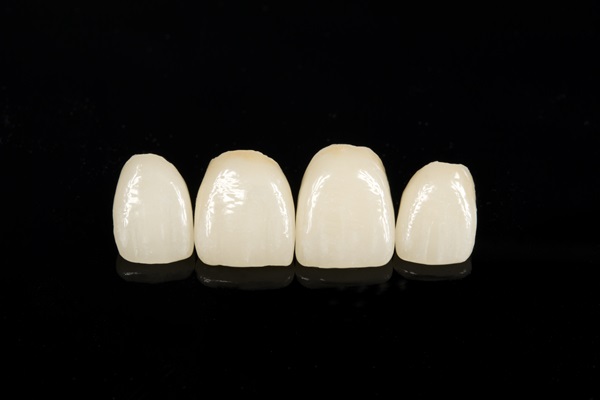The Number of Dental Visits for a Dental Crown

A dental crowns, also called a cap, forms the tooth's outer covering, protecting the tooth from decay and damage. A crown does not eliminate the need to visit your dentist in the future; you will still need to have your teeth professionally cleaned and examined regularly by your dentist. However, it can certainly help restore your smile. Dental visits are necessary because crowns require care from your dentist to prevent damage to the base of the tooth or an underlying infection or disease.
What is a dental crown?
A crown is a cap that fits over and covers some of your teeth. They're used to protect weak, broken, or cracked teeth. They can also be used to cover up tooth damage caused by fillings, which happen when decay spreads beneath one or more fillings. Dental crowns are usually made from porcelain fused to metal (PFM), gold alloy, or zirconia ceramics. These materials are strong enough to provide support while protecting your teeth from further damage.
Why do I need a crown?
A crown is a permanent artificial cap that is placed over a tooth to restore its shape and size and improve its strength. In many cases, you'll have multiple visits with your dentist so they can prepare your tooth correctly. Make sure you understand all that is involved in getting one to know what to expect! It's important to talk to your dentist about the entire process, what your recovery looks like, and how you can best prepare for the procedure. Knowing these things in advance can help ease your mind and be fully prepared as much as possible.
Types of crowns
There are many different crowns, but some are more common than others. Your dentist can go over each of these and explain them more in-depth. However, here is a simple breakdown. Some common types include porcelain, all-porcelain, and ceramic. Porcelain is a mixture of calcium oxide (or other minerals) and colored oxides that produce an opaque paste fired in kilns to create objects with new colors. All-porcelain crowns are like regular fillings, which often have added coloring from composite materials or stains to make them match your natural teeth better. Porcelain fused to metal crowns combines porcelain materials with metals such as titanium or zirconium to further strengthen them.
Process
Getting a crown is generally a two-visit process. On the first visit, a dentist will prepare and model your tooth and then place your temporary crown. At some point over about 10-14 days, you'll return to be fitted with your new permanent crown. When your permanent crown is ready, a dentist will remove your old temporary crown, clean your tooth/gum area, glue in your new permanent crown (using a special light-activated cement), and make sure everything feels as it should. Let your dentist know if you experience any discomfort or have other concerns about your healing process.
Contact your dentist
The process of getting your dental crowns can start with a single call. Call your dentist today to schedule a consultation for a dental crown. Get the smile you deserve.
Request an appointment here: https://easthanoverfamilydental.com or call East Hanover Family Dental at (973) 302-2078 for an appointment in our East Hanover office.
Check out what others are saying about our dental services on Yelp: Dental Crowns and Dental Bridges in East Hanover, NJ.
Related Posts
Dentists commonly recommend dental crowns to protect teeth that have become structurally damaged due to a variety of problems, including severe cavities, infection, and other forms of tooth decay. The application of dental crowns is one of the most widespread dental procedures, so it is important for patients to understand how long they should be…
Dental crowns are to thank for restoring teeth that are in bad shape. However, once they are placed, it is up to the patient to ensure that the crown does its job.There are a few things that dentists recommend once a dental crown has been placed. These recommendations can be extremely helpful when trying to…
Dental crowns are used in general dentistry very frequently as they are quite versatile. They can solve a number of problems ranging from a simple chip to a severe break. When considering dental restorations, it is worth looking into dental crowns. Outside of being versatile, they are offered in different materials, which can be helpful…
You may have heard of dental bridges as a type of restorative treatment at the dentist’s office. It is one of the various options the dentist can explore to restore smiles and the full function of the mouth. As you consider this treatment along with other possible solutions, it is helpful to understand how bridges…


